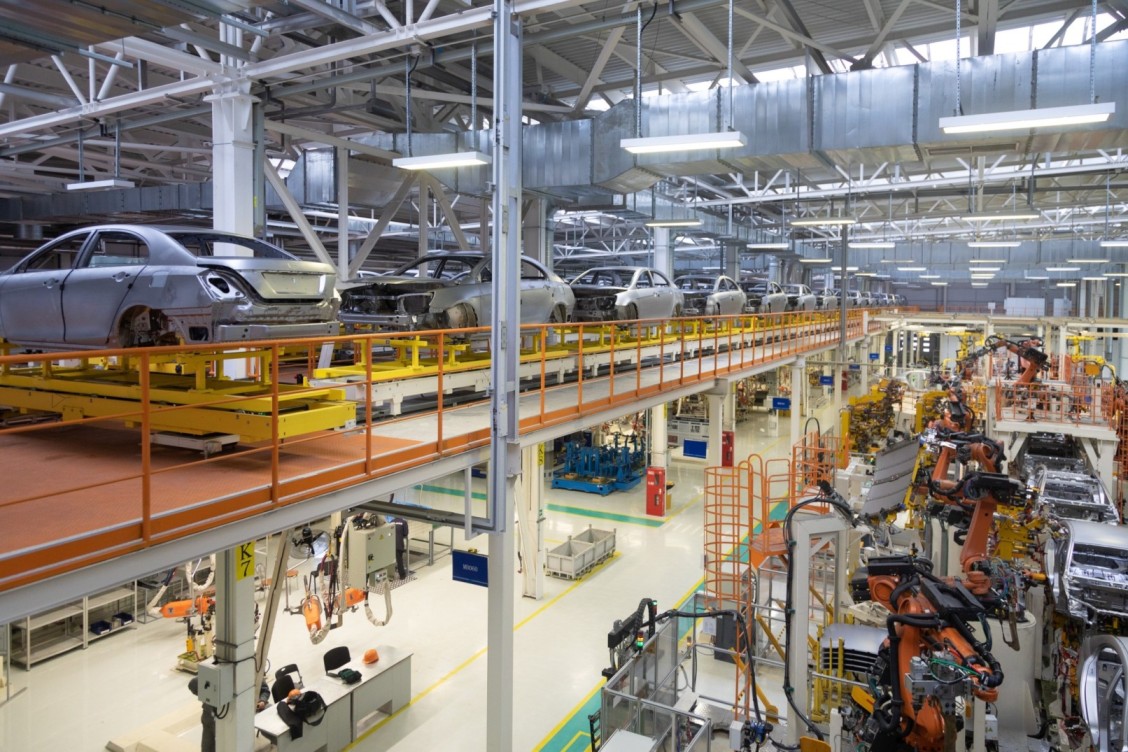Manufacturing companies in Sri Lanka need to increase productivity to remain competitive in the market. They must deal with multifaceted supply chain networks, satisfying customers and responding to the dynamism of markets within which they operate. How to do that?
Implementing enterprise resource planning (ERP) solutions has emerged as a significant player in manufacturing firms. It enhances operations and better decision-making, amongst other benefits. What’s more? Have a look
How ERP Solutions are enabling Manufacturing Companies to Stay Competitive?
Streamline Operations and Become More Productive
An ERP for manufacturing makes a business’s operations more efficient, since it connects numerous operations. In manufacturing, this integration concerns production scheduling, materials management and Logistics, materials acquisition, and quality assurance.
For instance, Enterprise Resource Planning (ERP) enables the organization to control stock. For example, which materials will be used at a particular time and when more stock is needed. This keeps production costs low and does not waste time on issues such as material scarcity. In the same way, production timings can be synchronized with customers’ needs to enhance order delivery and minimize lead time.
Accurate Data Storage and Retrieval
ERP software for manufacturing industry offers different divisions real-time access to specific details. When all data are compiled, decision-makers will have an integrated insight into operational management.
It assists in analyzing obvious delays, tracking KPIs, and predicting future statistics. Having accurate and timely reports enables companies to make timely decisions based on emerging market conditions. Using data analytics, it is also possible to find untapped opportunities to reduce costs and boost companies’ efficiency.
Supply Chain Management
When it comes to supply chain management, ERP plays a very significant role in boosting supply chain coordination between suppliers, manufacturers, and distributors.
It involves optimal supply chain inventory tracking, supplier evaluation, and crucial procurement flows within the framework of an ERP system. This minimizes the chances of disruption from supplier delays or errors or from a variety of other factors. Also, real-time tracking helps in reacting to changes in supply and demand.
Support Lean Manufacturing
Lean manufacturing concepts are fundamentally oriented to eliminating waste and improving operational efficiency. ERP systems are beneficial as they support these principles by providing automation and decreasing complexity.
For instance, ERP software may indicate that there is a lot of overstocked inventory or that more time is being spent than necessary. As a result, manufacturers can save money and improve efficiency overall. The net result is a lean production process that delivers a superior product at a reasonable price.
Enhance Customer Experience
Customer products today must arrive quickly, and tailor-made solutions. Third-party services should be of the highest quality. Manufacturers adopt ERP systems to meet such expectations regarding communication, tracking orders, and order delivery on time.
For example, ERP solutions can show customer orders from one stage to another, showing where they are at each time. This transparency makes customers trust and fully satisfied with the products provided. Manufacturers also capitalize on buying patterns to market products via ERP, meaning they can deliver solutions, products, or services that suit unique customer demands.
Support Compliance and Risk Prevention
Manufacturing firms are bound by legal regulations, safety measures, and quality assurance nomenclature. ERP systems make record-keeping easier and guarantee compliance with processes to set rules.
For instance, ERP software monitors production procedures to ensure they meet safety and quality standards. It also keeps audit trails, showing compliance throughout audit checks with their quality standards.
Embrace Innovation
Many ERP solutions are integrating emerging technologies like AI, IoT, and automated machine learning into their systems. These features help with predictive maintenance, real-time equipment tracking, and demand analysis.
For example, IoT-connected ERP systems can collect data from manufacturing equipment to determine when a problem could prevent it from working. These results can be used to make future demand forecasts and adapt production schedules to the functions of these forecasts.
Introducing the principles of ERP solutions into a particular manufacturing organization has become a strategy aimed at helping manufacturing firms be competitive in the modern business world.
Conclusion
Staying competitive in the manufacturing industry requires embracing innovation, enhancing operational efficiency, and meeting evolving customer demands. ERP solutions empower manufacturing companies in Sri Lanka to streamline operations, optimize supply chains, support lean manufacturing, and ensure compliance with industry regulations—all while delivering exceptional customer experiences.
Adopting an ERP system is more than a technological upgrade—it’s a strategic investment in your business’s future, enabling you to respond effectively to market dynamics and drive sustained growth.
At Blue Lotus 360, we provide cutting-edge ERP solutions designed to address the unique challenges of manufacturing businesses. Contact us today to discover how our solutions can help your company thrive in an increasingly competitive landscape!














